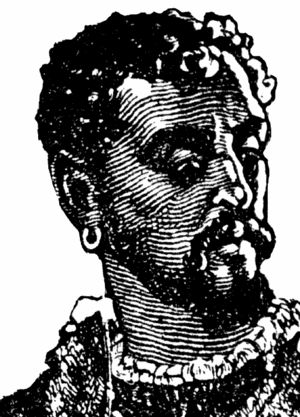Through each character’s speech and actions, we learn about the character’s desires, intentions, motivations, and dreams. Various aspects of figurative speech are seen throughout Shakespeare’s “Othello.” One example of figurative speech is pattern of imagery created by Desdemona constantly being referred to as “fair.” The use of “fair” presents Desdemona not only as white, but […]
Tag Archives: Iago
Out of all the examples of Shakespeares animal imagery, it is perhaps that of “making the beast with two backs” that engenders the feelings of most disgust on a character, or indeed, an audience. The reference comes from Othello, where Iago tries to think of the very worst scenario he can possibly paint to a […]
In William Shakespeare’s plays, women often inhabit roles not considered to be of the Renaissance societal norm. According to Shakespeare’s society built upon Renaissance beliefs, women were meant only to marry. As their single occupation, marriage held massive responsibilities of house management and child rearing. Additionally, women were expected to be silent, chaste, and obedient […]
Emilia is a somewhat puzzling character in Othello since she does not have soliloquies or asides. Unlike Lago, who reveals himself in detailed monologues, what goes on in her mind is left up to the reader’s imagination. Despite limited knowledge of Emilia’s intent, the play implies that her intentions were innocuous even though they lead […]
Time passes, they read the type of text, dissected, destroyed. Suddenly, in the age of literary criticism, a new theory arises. Schools of thought form and shape and eventually find themselves in the subconscious of the reader, who now has the ability to understand his literature with a new interpretive strategy. One of the new […]
It is fairly safe to say that human nature is something that Shakespeare was intent on articulating through his works. To be more specific, he was intent on articulating the concept of consequences we face because of our wrongs. For example, his characters King Lear, Macbeth, and Othello-though not inherently villainous-made specific choices that not […]
In the play Othello by William Shakespeare, Iago is a malicious manipulator who commits treachery for no real reason. Samuel Taylor Coleridge, the famous English poet, describes Iago’s actions as “the driving force of malice” because in the play Iago maliciously breeds disaster and desperately searches for the reasons for his malice. Iago’s purpose to […]
We often associate art with the opportunity to learn. From reading a classic novel or looking at an intriguing piece of art, we can gain an immense amount of insight and knowledge. In that same manner however, we can also learn much from great works of film and cinema. Giving proper recognition to a great […]
For centuries, the intricate characters in William Shakespeare’s plays have enchanted audiences all over the world. Each of these plays is filled with rich characters that people can truly relate to, and often, the character who “steals the show” is not necessarily the lead character. The names of these powerful supporting characters have become household […]
Shakespeare examines Othello through his weakness and ease of conversion. Othello marries the daughter of the Moor and Emperor of Veneto, Desdemona of Brabant, a noble Veneto. Iago, old Othello, and Cassio, late Othello’s ambassador, accompany Othello and Desdemona to Cyprus. Iago, angry that Othello did not name him leader, uses Roderic, Desdemona’s admirer, to […]
- 1
- 2
